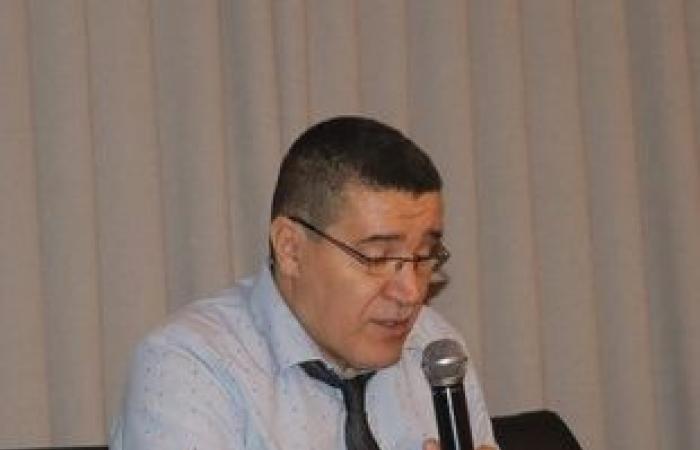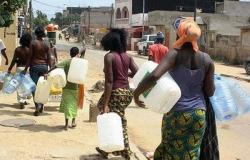On December 18, 2024, the Mohammed V University of Rabat, in collaboration with the WIN Morocco association, organized a significant event: the Nuclear Applications Day in Morocco. This event brought together actors from the nuclear sector, both Moroccan and international, in order to assess the current state of nuclear power in the country, explore its future prospects and discuss the socio-economic and environmental issues linked to this technology. This day is part of an ambitious national drive for energy transition, in which nuclear power plays an increasingly central role.
A promising start for a strategic debate
The opening ceremony of the Nuclear Applications Day set the tone for this landmark event, inaugurated by eminent figures from the Moroccan energy and scientific sector. The Minister of Energy Transition, Dr. Leïla Benali, highlighted the importance of this day by emphasizing the crucial role that Morocco aspires to play in the global energy transition. She insisted on the progressive integration of nuclear power into the Kingdom’s energy policy, aiming to strengthen energy independence, reduce dependence on fossil fuels and minimize greenhouse gas emissions.
Prof. Mohamed Rhachi, President of Mohammed V University, also reaffirmed the importance of scientific research and advanced technologies, particularly nuclear power, in building a sustainable energy future for Morocco. The event benefited from the presence of Mr. Saïd Mouline, Director of AMSSNuR (Moroccan Agency for Nuclear and Radiological Safety and Security), as well as advisors from WIN Global and WIN Morocco, such as D. Mouillot and K . Bendam, who brought their international expertise in nuclear applications.
A Moroccan nuclear sector in full evolution
The day’s conferences offered a complete overview of the role and applications of nuclear power in Morocco. Moderated by Ms. Rajae Cherkaoui, active member of WIN Morocco, the first session addressed several key themes linked to the country’s energy strategy.
Dr. Leïla Benali presented the Kingdom’s energy strategy, highlighting the diversification of energy sources as a major pillar of Moroccan energy policy. She highlighted the growing importance of nuclear power as a source of carbon-free energy. Dr. Benali reaffirmed Morocco’s commitment to gradually and responsibly integrate nuclear technologies into its energy mix, paying particular attention to security and sustainability.
Mr. Saïd Mouline, Director of AMSSNuR, clarified the regulatory and nuclear safety aspects in Morocco. He highlighted the Kingdom’s efforts to align its legislation and practices with international nuclear safety standards, thus ensuring the protection of the population and the integrity of installations. Mr. Mouline also recalled Morocco’s vigilance in the face of security issues, both for the public and for the environment, in the context of the peaceful use of nuclear energy.
Concrete and innovative applications
The Nuclear Applications Day also made it possible to explore concrete and innovative applications of nuclear power in various fields such as energy production, medicine and industry.
Moroccan uranium, often little known, was highlighted by H.Guedira, natural resources expert. With significant uranium deposits, Morocco has the opportunity to develop a national nuclear industry. According to Mr. Guedira, rational exploitation of these resources could strengthen the Kingdom’s energy autonomy and give it a leading position in the renewable and nuclear energy sector.
A notable session was dedicated to the latest generation reactors. T. Dubrulle presented advances in the design of these reactors, which are characterized by their safety, efficiency and low environmental impact. These reactors, safer and more efficient, are also designed to optimize the management of nuclear waste, thus representing a major development for the global nuclear industry, in which Morocco could play a key role.
Another memorable session focused on Theranostics, an innovative approach that combines therapy and diagnosis. Prof. N. Ben Rais explained how this technology uses radiopharmaceuticals to treat diseases such as cancer, while allowing personalized diagnostic monitoring. Theranostics offers promising prospects for personalized medicine, with more targeted and effective treatments.
Finally, Dr. B. Zoubir discussed the use of Cyclotrons in the production of medical isotopes, essential for the diagnosis and treatment of various diseases, including cancer. This technology perfectly illustrates the integration of nuclear sciences in the public health service, and Morocco could position itself as a key player in this field in Africa and the Middle East.
An essential debate for the future of nuclear power in Morocco
Beyond the technical conferences, the Nuclear Applications Day also provided a space for discussion and reflection on the socio-economic and environmental issues associated with nuclear energy. Although this technology offers undeniable advantages, particularly in terms of reducing greenhouse gas emissions and developing carbon-free energy, it also raises complex questions. Topics such as radioactive waste management, nuclear facility safety and public perception fueled many discussions.
In its quest for sustainable development, Morocco seeks to balance its energy ambitions with environmental and social concerns. It is essential to approach nuclear power with caution and ensure full transparency in order to guarantee public support and optimize the management of associated risks.
Conclusion: A promising future for nuclear power in Morocco
The Nuclear Applications Day in Morocco was a great scientific success. This event made it possible to establish an exhaustive inventory of the nuclear sector in the country, while opening perspectives on its future development. Committed to an ambitious energy transition, Morocco could take advantage of nuclear technology to strengthen its energy autonomy while pursuing its sustainable development objectives.
This day consolidated the idea that nuclear power can not only be a pillar of the Moroccan energy mix, but also a major asset in other sectors, such as medicine and industry. The future of nuclear power in Morocco appears promising, provided that investments in research, training and safety are continued, while taking into account environmental, social and economic issues. Morocco has the necessary assets to position itself as a key player in the nuclear field on a global scale.






